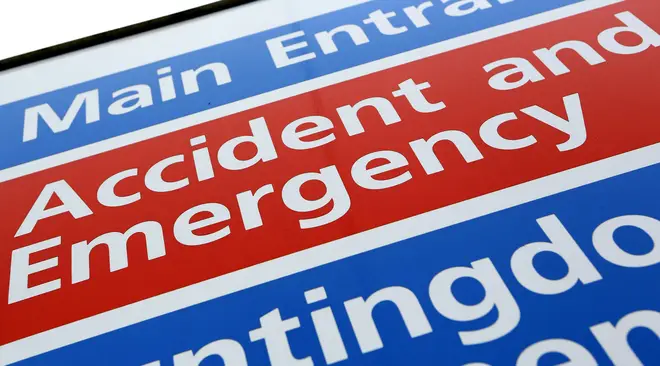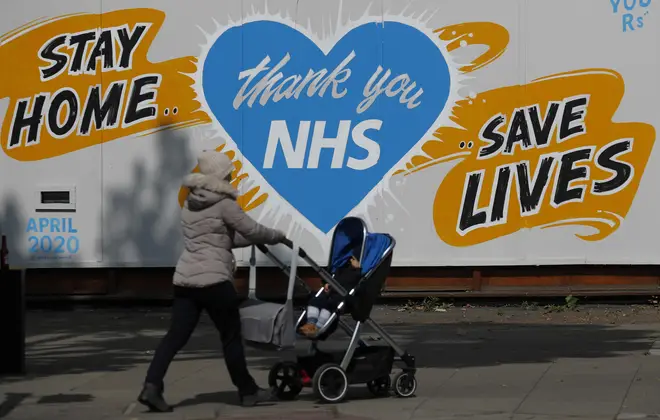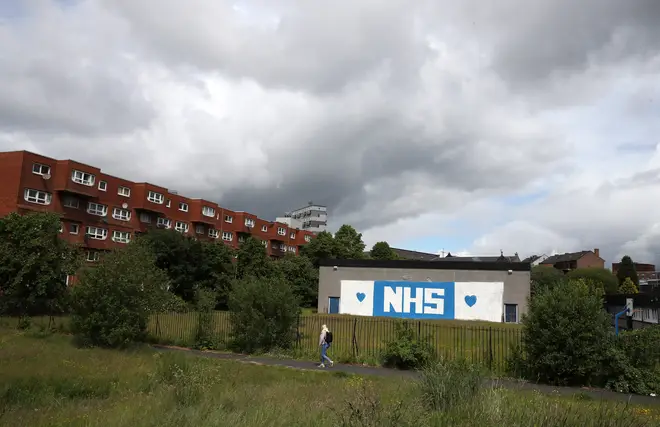
Matt Frei 10am - 1pm
10 June 2020, 00:13

Around 10 million people will be on the waiting list for NHS treatment by the end of the year health bosses have said.
This is more than double the current figure.
NHS Confederation chief executive Niall Dickson said the entire health service was under "huge pressure".
Projections by the NHS Confederation show that the combined effects of keeping up social distancing, the backlog of treatments and challenges around staffing mean the list is expected to rise from around 4.2 million currently to around 10 million by Christmas.
This is the most realistic scenario, and assumes the health service making a steady return to full capacity within the next 12 months.
The pessimistic scenario, according to the NHS Confederation, assumes a second wave of Covid-19 and a lack of treatments or a vaccine, pushing the waiting list to around 11 million by the end of the year.
The most optimistic scenario assumes a faster return to normal, where the waiting list will be around eight million by the end of the year.
Mr Dickson said: "There is going to be huge pressure to get waiting lists down.
"There's also going to be huge pressure in other parts of the service - we shouldn't just concentrate on waiting lists or hospitals but also look at what's happening in community services and primary care.
"Because in all those areas the ability of the service to meet demand, and growing demand, over this period will be severely constrained by the fact that Covid is still around - so we are still treating Covid patients and recovering Covid patients.
"But we are also dealing with this un-met demand which has built up over this period as well as inheriting what happened before Covid, which was already a service under great strain."
Matt Hancock has admitted NHS waiting lists will increase as the service reopens following the concentration on coronavirus cases.
The Health Secretary said he did not recognise a projection by the NHS Confederation that the numbers could more than double to 10 million by the end of the year but he acknowledged there was a "very serious problem".
"That isn't the figure that we have got, but there definitely is an increase. Absolutely," he told the virtual CogX technology conference.

The confederation, which represents health and care leaders, published a new report warning that the health service in England "faces an uphill battle" as it continues to manage thousands of sick and recovering Covid-19 patients while also trying to restart services such as those for cancer, stroke and heart disease.
It warned that services will operate with much reduced capacity - possibly around 60% of normal - because of the need for infection control measures, including social distancing to keep patients and staff safe.
The health leaders called on the Government to prepare the public not to expect the same level of service for many months, adding that some staff are so exhausted and traumatised from caring for coronavirus patients that they will need support.
It comes after the Society for Acute Medicine (SAM) warned earlier this week that the NHS must prepare for a "winter like no other" as it copes both with seasonal flu and coronavirus.
In its study and accompanying letter to Prime Minister Boris Johnson, the NHS Confederation warns that it will not be possible to simply "switch on" NHS services immediately.
It also calls for further assurances on the effectiveness of the Test and Trace programme and further guarantees over personal protective equipment (PPE).

The report said that "recent short-term financial commitments", including the coronavirus emergency response fund and the writing off of provider debt, have been welcomed, but many hospitals still say their financial position is rapidly deteriorating.
The study also calls for an extension of the current deal with the independent sector until the end of the financial year "to provide capacity to support the NHS to manage the backlog of treatment."
In addition, the Nightingale Hospitals should also be maintained in case of any further spikes in infections, it said.
The report also called for a review of "burnout and wider wellbeing" across the NHS and social care workforce.
Richard Lee, chief operating officer, St John Ambulance said: “St John volunteers have delivered more than 100,000 patient-facing hours in the fight against COVID-19 and we welcome the NHS Confederation’s recommendations.
"It is vital that voluntary, community and social enterprise organisations are included in discussions about the next phase of planning for the pandemic and beyond. Making sure St John and other organisations are written into these plans to provide certainty both on funding and resourcing requirements is key.”
“St John volunteers have played an integral role in caring for patients, supporting the NHS and keeping communities safe, through hospitals, ambulances and community services.
"Our St John People have demonstrated their humanity, expertise, flexibility, scale and resilience to deliver whatever our nation’s health needs, and we are ready should a second wave of the virus occur or if there is any surge in demand on the NHS. We look forward to agreeing our contribution to the next phase of this pandemic and recovery”.

Colleagues line street for funeral procession of NHS worker
A Royal College Of Nursing spokesman said: "For burnt-out nursing staff on short-staffed wards, care homes or clinics, it will be a struggle to restart services.
"The legacy of this pandemic is yet to dawn - the professionals are still focused on the here and now.
"As services begin to return, the Government must continue to invest in the workforce so that an exhausted profession - already facing 40,000 vacancies at the start of this pandemic - is properly supported."
Shadow health secretary Jonathan Ashworth said: "Ministers need to take heed of these warnings from NHS leaders now.
"It is inevitable that the Covid-19 pandemic will impact our health service in the months ahead but it is vital that ministers begin to address this backlog of delayed treatment and rising clinical need."
A Department of Health spokeswoman said: "Guidance has already been issued to the NHS on how they should start to restore urgent services in a safe way.
"We will continue to provide the resources, funding and support our health service needs."